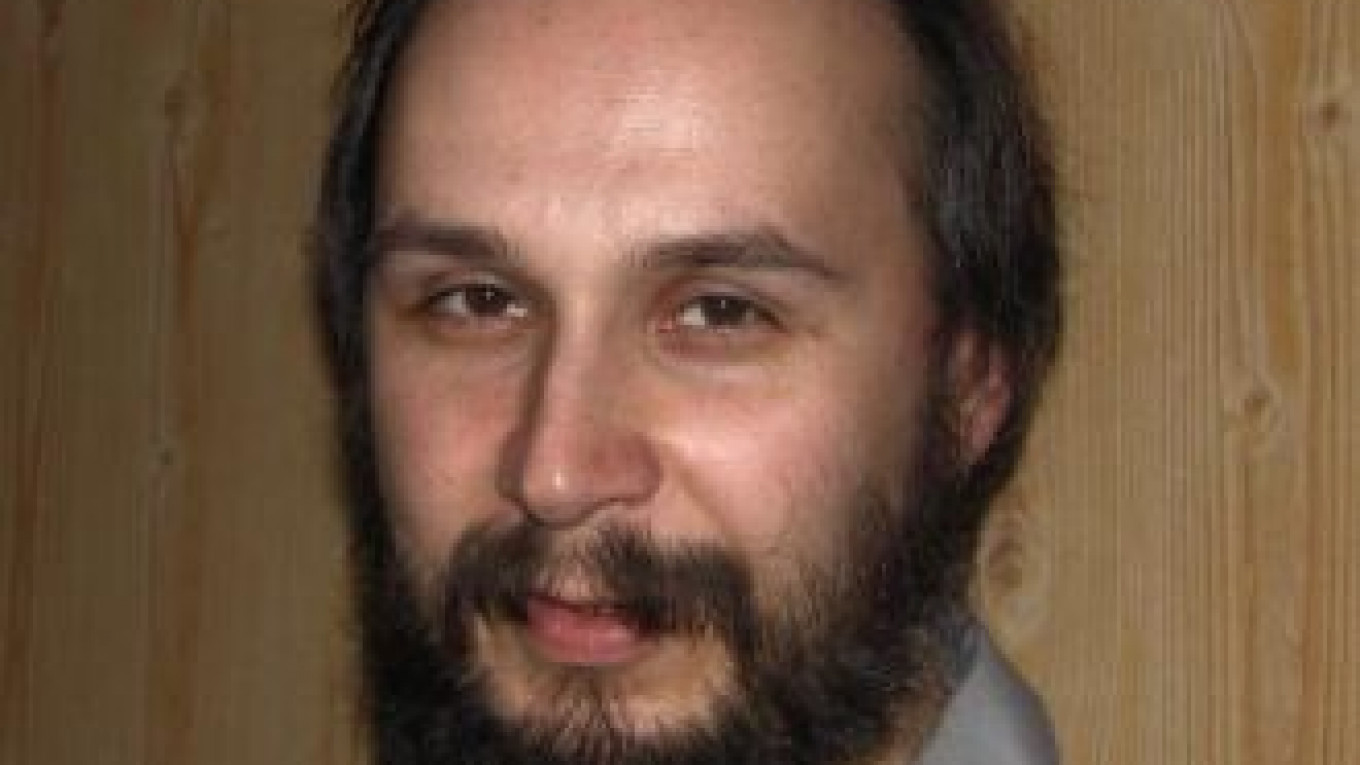Bitter experience showed Mikhail Verbitsky that there's a price to be paid for being flippant about facial hair.
Verbitsky, a prominent mathematician and blogger, was on his way to a mathematics conference in Warsaw last week when he was seized by border guards at Sheremetyevo Airport and hustled into a detention cell.
The guards took his passport and shuttled him from room to room without explanation, until at last one suggested that Verbitsky check the bailiff's website to see whether he was in debt.
Sure enough, there he was — a , convicted in absentia for copyright infringement. As a consequence, he is barred from leaving Russia until he pays 300,000 rubles ($10,000) on charges he'd never heard of.
The charge, Verbitsky later learned, stems from a July 2006 blog post in which he ridiculed an ultranationalist named Igor Pugach using an image and text from Pugach's website.
In the passage, Pugach, who refers to himself alternately as the "commander of the Order of Moscow," "his majesty" and the "prince of Tenkinsky," accused Brazilian writer Paulo Coelho of violating copyrights by wearing a goatee, a style of beard that Pugach claims is his intellectual property and a part of Russia's cultural heritage.
"The website is one of the funniest things I've ever seen on the Internet," Verbitsky said. "He's suing everybody because of a beard. He believes he owns the idea of the beard, essentially."
Pugach has accused Russian rock star Andrei Makarevich, former U.S. Ambassador to Russia John Beyrle and scores of others of copyright infringement.
Verbitsky, who wears a full beard and not a goatee, said he was probably convicted for using the trademarked image of Pugach's bearded visage, not merely for sporting a beard himself.
A Pugach associate said the use of even the beard alone constituted a violation of Pugach's copyright.
"The beard is an element of the trademark," said the man, who refused to identify himself but said he was not Pugach. "Nobody has the right to use it without permission."
He also denied Verbitsky's claim that Pugach, whose name means popgun, had sued scores of celebrities and lost every time.
"Pugach hasn't sued any actors or musicians," he said.
The charge against Verbitsky caused snickers in the blogosphere, where bloggers were quick to point out Pugach's extreme nationalist ideas and mock his global crusade to control the goatee with the help of his company, Boroda, or in English, Beard.
But Verbitsky isn't taking it lightly.
"It looks like a joke, but it's absolutely not a joke," he on his blog after he was detained. "I need a lawyer, a professional lawyer."
Several sharp-tongued bloggers have wound up in court in recent years, most of them for violating Russia's vague extremism laws, which critics say are used to muzzle dissent.
Verbitsky, who once won a libel lawsuit against the head of a famous cat circus, sees the Pugach lawsuit as a new tactic against dissenters.
"If they had put me on trial for political reasons, they'd face the European Court of Human Rights," Verbitsky said. "This way, they won't. They're testing the strategy," he said.
The mathematician, who has a doctorate from Harvard and has lectured around the world, said he wasn't sure who was out to get him, or why.
"If I told you it's a FSB conspiracy, you'll think I'm crazy. I'm not sure. I don't know," he said. "This case is just a warning. The next call will be much more severe."
Pugach's associate insisted that the was strictly about copyright infringement, but Maxim Platonov, a lawyer at Muranov, Chernyakov and Partners, said it was groundless because Verbitsky's use of Pugach's trademark was informational not commercial.
"It's impossible to violate a trademark unless you're using it to sell something," he wrote in e-mailed comments.
As for Pugach's claim that it is illegal to wear or display a goatee without his permission: "That's completely absurd," Platonov wrote.
A registered trademark consists of the entire trademark; individual elements are not protected, he wrote.
Verbitsky is appealing the ruling, though he isn't sure whether he's allowed to appeal, given that he was convicted in absentia. And he has no idea when the case will be resolved.
"In the end," he said, "I might just have to pay this bizarre sum."
A Message from The Moscow Times:
Dear readers,
We are facing unprecedented challenges. Russia's Prosecutor General's Office has designated The Moscow Times as an "undesirable" organization, criminalizing our work and putting our staff at risk of prosecution. This follows our earlier unjust labeling as a "foreign agent."
These actions are direct attempts to silence independent journalism in Russia. The authorities claim our work "discredits the decisions of the Russian leadership." We see things differently: we strive to provide accurate, unbiased reporting on Russia.
We, the journalists of The Moscow Times, refuse to be silenced. But to continue our work, we need your help.
Your support, no matter how small, makes a world of difference. If you can, please support us monthly starting from just $2. It's quick to set up, and every contribution makes a significant impact.
By supporting The Moscow Times, you're defending open, independent journalism in the face of repression. Thank you for standing with us.
Remind me later.


